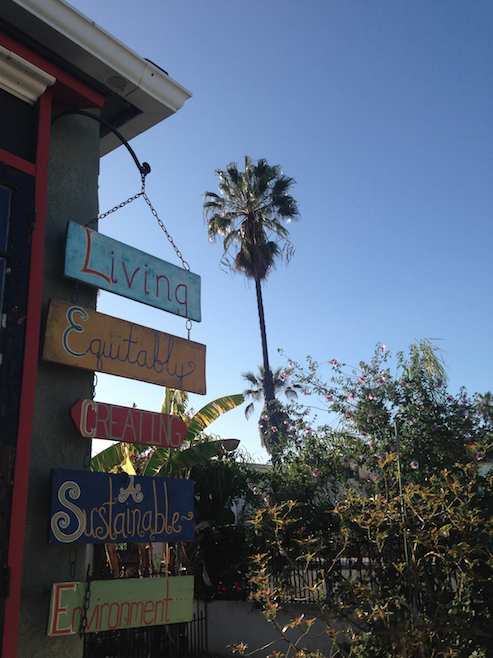What is an Ecovillage?
There are many definitions of an ecovillage but they all share community oriented ecological goals. One short web ecovillage definion reads “A community whose inhabitants seek to live according to ecological principles”.
Another definition appears in the “Wiki” that was adopted as a somewhat standard definition was written by Robert Gilman.”In 1991, Robert Gilman set out a definition of an ecovillage that was to become a standard. Gilman defined an ecovillage as a: “human-scale full-featured settlement in which human activities are harmlessly integrated into the natural world in a way that is supportive of healthy human development, and can be successfully continued into the indefinite future.” [2] In recent years, Gilman has stated that he would also add the criterion that an ecovillage must have multiple centres of initiative.[3]
What kind of Ecovillage is LeCase and what makes it unique? The concept of the ecovillage continues to expand in concept with the advent of new possibilities that broaden eco projects and activites appropriate for a specific permaculture environment. Our LeCase ecovillage is a small urban san diego ecovillage that is continually exploring many opportunities to improve our community and pass it along with the hope to educate others that share a common goal.
At the LeCase urban Ecovillage we plant and produce our oun natural foods using organic farming methodologies. Understanding these differences can be confusing but we are accomplishing both here at our San Diego (Pacific Beach) Ecovillage. For more information regarding the definitions and differences betweeen organic and natural please check our resources or “eco-dictionary” page on the LeCase ecovillage website.
Ecovillage Evolution “Would it be an exaggeration to claim that the emergence of the ecovillage movement is the most significant event of the 20th century? I don’t think so.” — sociologist Ted Trainer, University of New South Wales, Australia.
Global Ecovillage Network Quoting from JT Ross Jackson “No one knows exactly how many ecovillages exist. Most have started up historically as local initiatives. Many are not yet connected to GEN. Our rough estimate of the number of intentional communities, including co-housing projects, would be about 4-5000, depending a little on the definition. Although Albert Bates of the GEN International board, estimates that there may be as many as 15,000 with a broad definition. The size of intentional ecovillages varies a lot, but is seldom greater than 500. Of course, the South is a different story, as hundreds of thousands of traditional villages still have their social structure intact, although they are under great pressure from commercial globalisation. The largest GEN constituent is the 40-year old Sri Lanka Sarvodaya movement, which includes about 12,000 traditional villages.”
Although this information is outdated (2004) the statement is a good indicator of where we are today. The numbers relating to today’s number ecovillages have grown significantly. The Global Ecovillage Network is about fostering the connection of ecovillage communities worldwide and is a good source for ideas and helping ecovillages build and improve thier communities.
